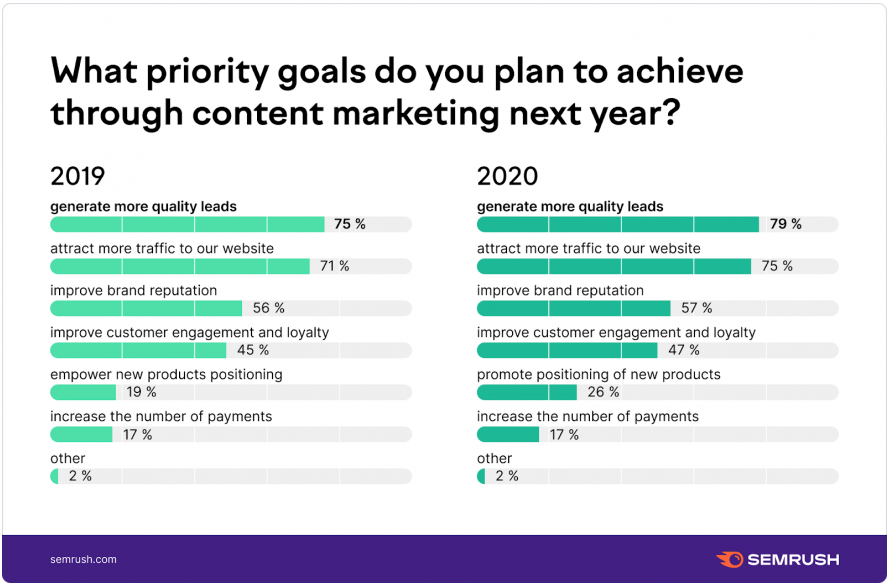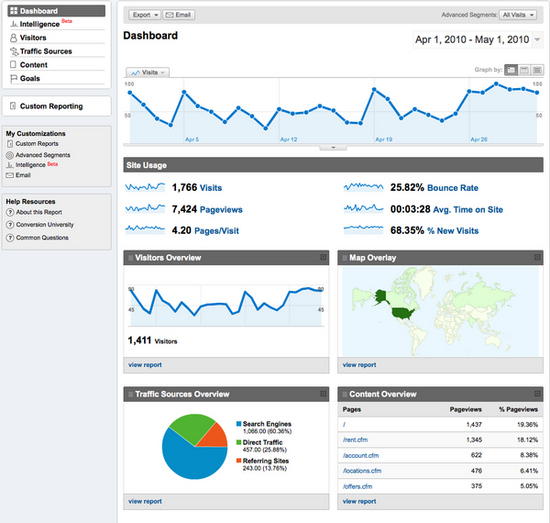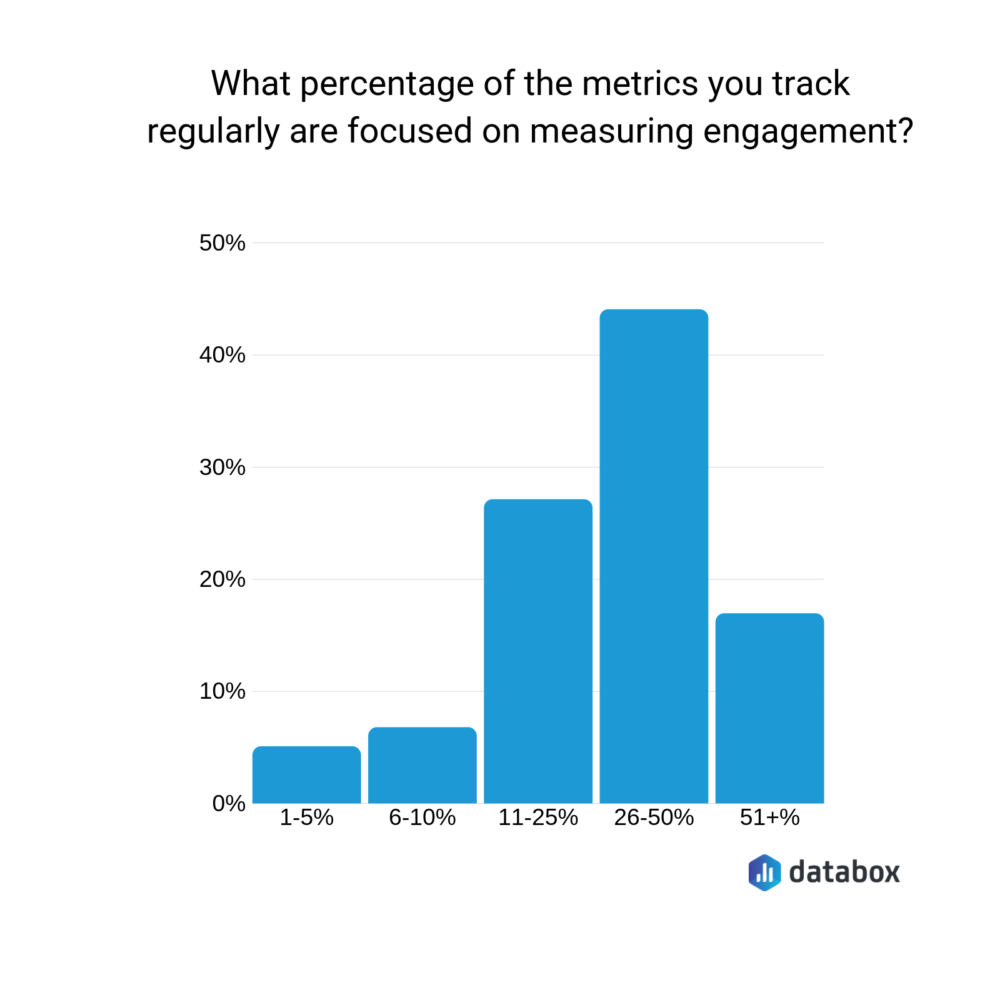
Table of Contents
- Introduction
- 4 Types of Content Marketing Metrics
- Traffic
- Conversion rates
- Engagement rates
- Growth in your subscribers
- Conclusion
- Key Takeaways
- FAQs
What are some basic metrics you need to track to measure the success of your content marketing? This blog will give you an outline of what to watch out for.
Words carry immense power in the world of marketing. High-quality content can drive traffic to your website, give actionable and relevant information to your existing and prospective customers, and, above all, nurture a higher brand affinity. However, the success of any content marketing campaign needs to be measured through relevant content marketing analytics that can communicate the ROI on your efforts.
As brands become more and more aware of these benefits, they are beginning to invest more dedicatedly in content marketing. But, unlike conventional marketing regimes, content marketing does not give you immediate results. This is the reason why brands are often not able to comprehend the immediate ROI of content marketing because it rarely results in macro conversions (for instance, completed sales on an eCommerce site). Content marketing is something that you have to nurture consistently over some time.
Regardless of the timeline of your content marketing strategy, you need to quantify and measure the success of your campaigns through content marketing performance analytics. This assessment is crucial for the success of your content marketing. What’s more, this data can be used to boost your future strategies as well.
Content marketing is made up of many blocks – starting from audience research to content scheduling, creation, and distribution. With these building blocks in place, you will be able to get some results. But, how will you track these results? It all comes down to the metrics that define the performance of your content marketing. If you want to know more about these content marketing metrics or content analytics, read on.
4 Types of Content Marketing Metrics
There are many ways in which you can gauge the success of your content marketing efforts. Sometimes the results can be very evident. For example, if your strategic blogs aim to create more leads for your newsletters, their success will be easily reflected in the rising email newsletter subscriptions. Let’s elaborate on the types of content marketing metrics, further:

1. Traffic
Your online content will be meaningless without traffic. Traffic is the lifeblood of any piece of content that your business publishes online. In other words, your well-researched blog posts mean nothing if people are not landing on your website. Therefore, traffic is one content analytic that you cannot afford to skip. When you are analyzing the traffic, split that data into smaller parts for a deeper understanding of your content’s performance. Look for the following in your traffic data:
- Users: Find the total number of users who visited your page.
- Page views: This stat tells you how many times a page on your website has been viewed.
- Unique page views: This tells you the number of unique viewers who visited your page. For example, if a certain user has visited your page four times, that is combined and counted as one view in terms of unique page views

With this information, you will have an estimate of the volume of traffic that lands on your pages. You can further analyze the source of this traffic for a deeper insight. For example, if you get a lot of traffic from a particular region or city, your next blog post could be tailored to address people in that place. Or if you receive significant traffic from a particular social media platform, say Facebook, your next blog post could cater specifically to Facebook users.
2. Conversion rates
To put it simply, the total number of conversions divided by the total number of ad clicks that can be tracked to conversions during the same time period is the conversion rate. Conversions are not equal to the traffic on your site. It is great if you have traffic on your page, that means people are visiting your website and reading your blogs. But what are they doing after that? Are they clicking to read more of your content? Are they responding to your call-to-action – for example, signing up for your newsletter or following you on social media? The conversions most brands look for involve leads and/or direct sales. But it is up to you to decide what qualifies as a conversion. Some campaigns might count sales as a conversion, while some might just aim at creating awareness. If you approach such content analytics with clarity of intent, you can have a better understanding of content marketing.
Important content marketing metrics to measure for conversion:
- Cost Per Conversion
- Value Per Visit
- New Visitor Conversion Rate
- Return Visitor Conversion Rate
3. Engagement rates
Engagement is a metric that sees how effective or brilliant your content is, and how much time your average customer is spending on your website. This metric can vary from brand to brand. Conventionally, you would want your leads to spending as much time as possible on your website so that they can consume more content. Or, more prudently, you would want to funnel your leads as quickly as possible to a sales webpage. All in all, you need to be aware of the number of pages that your customers are viewing on your site and how much time they are spending on them.

Engagement content marketing metrics include:
- Bounce rate
- Pages per session
- Average session duration
- Click-Through Rate
- Returning visitors
- Time on Page
4. Growth in your subscribers/followers
If, as a brand, you are looking to build a community, this metric is extremely important for you. This will tell you how many subscribers you have been able to tap through a particular campaign or form. Many marketers use call-to-actions within pop-ups, forms, and other types of marketing content to get people to sign up for their services. These help them to contact their leads and use that interaction for further promotions and advertisements. Thus, subscriber growth is a simple numeric metric that can help you track your growth periodically.

Conclusion
These four content marketing analytics and metrics will not only help you to formulate strategies in a more informed manner but will also allow you to pitch content marketing to your clients more effectively. By tracking metrics and comparing the insights, you can understand which part of the campaign needs to be explored further and which part needs improvement. Now that you have the right content marketing metrics to track, you may want to read about the content marketing performance metric tools that we recommend.
To sum up, keep an eye on the numbers and rethink your strategies as and when required.
Key Takeaways
- Content marketing is today the mainstay of every brand’s marketing strategy. However, it is not always possible to comprehend the immediate ROI of content marketing efforts because it rarely results in macro conversions and thus, content marketing performance analytics are a must for measuring the success of any content marketing strategy.
- A few content marketing metrics that aptly report the performance of a content marketing campaign are traffic, conversions, engagement, and growth in subscribers.
- There are various content marketing analysis tools available in the market to track the performance of a campaign.
FAQs
Businesses today need to measure the success of their content marketing efforts by tracking some key content marketing metrics. This process is called content analytics. Some of these content marketing analytics and metrics include:
1. Consumption metrics
2. Sharing metrics
3. Lead generation metrics
4. Sales metrics
Content marketing has become an inseparable part of the entire marketing plan of a business today. However, after implementing the strategies it is very important to track them as well. Content marketing analytics and metrics play a major role in measuring the success of your content marketing efforts and accordingly redesigning future strategies.
Some ways of measuring content marketing include tracking content marketing analytics and metrics like:
1. The website traffic that you gain
2. Shares you receive
3. New subscribers that sign up
4. Sales you incur
Examples of various content marketing platforms include blogs, social media, emails, podcasts, infographics, etc. Some brands that have been nailing content marketing include Dunzo, Coca-Cola, RazorPay, etc.
Latest Blogs
Learn how to rank on AI search engines like ChatGPT, Perplexity, and Gemini by optimizing your content for authority, structure, and relevance. Stay ahead in AI-driven search with this strategic guide.
Explore the best healthcare SEO services for your medical practice. Improve online visibility and effectively reach more patients in need of your services.
Discover top social media agencies specializing in banking solutions, enhancing financial services and driving engagement.
Get your hands on the latest news!
Similar Posts

Content Marketing
4 mins read
11 Best B2B Content Marketing Agencies for B2B Companies in 2024

Content Marketing
5 mins read
Top ecommerce Marketing Agencies with Proven Strategies for 2024

Content Marketing
5 mins read